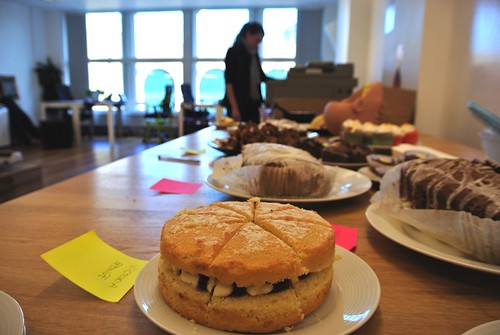Welcome to Word Buzz Wednesday, your go-to place for the most interesting words of the week. The latest: a passive aggressive veto; gacha gaming; and don’t let them eat cake.
pocket veto
“Thomas said he did not know why the prior administration did not authorize the operation, but said the Obama administration had effectively exercised a ‘pocket veto’ over it.”
Spencer Ackerman, Jason Burke, and Julian Borger, “Eight-year-old American girl ‘killed in Yemen raid approved by Trump’,” The Guardian, February 1, 2017
According to History, Art & Archives, there are two kinds of presidential vetoes. With a regular veto, which is a “qualified negative veto,” the “President returns the unsigned legislation to the originating house of Congress” with a “veto message.” If Congress collects a two-thirds vote of each house, it can override this veto.
A pocket veto, however, can’t be overridden. It “becomes effective when the President fails to sign a bill after Congress has adjourned and is unable to override the veto.” The pocket veto is so called, says Online Etymology Dictionary, because the President retains the bill “figuratively, in his pocket.” The term originated around 1842 while the act itself was first used in 1812 by President James Madison.
orenda
“Orenda (Huron) – the power of the human will to change the world in the face of powerful forces such as fate.”
David Robson, “The ‘untranslatable’ emotions you never knew you had,” BBC, January 26, 2017
The Huron language is also known as Wyandot or Wendat, an Iroquoian language. Iroquoian languages are a Native American language group spoken in the eastern U.S. and southeast Canada.
gacha
“Gacha is the most prized of the dark arts that Japanese gamemakers have used to make their country the most lucrative mobile gaming market per user in the world.”
Yuji Nakamura, “Nintendo Plays with Fire,” Bloomberg Technology, February 2, 2017
Gacha, says Bloomberg Technology, is a technique in which players can download and play games for free but are lured “into spending money to unlock special in-game items.” Basically, the players are “asked to spend money without knowing what they’re buying ahead of time.” The word gacha (“not to be confused with ‘gotcha’”) is imitative in origin, coming from “the sound Japanese vending machines make when dispensing toy capsules, whose contents can’t be seen prior to a purchase.”
cake culture
“Could your office cake culture be a public health hazard?”
Laura Hughes, “Civil servants warned office ‘cake culture’ could be a ‘public health hazard,’” The Telegraph, January 30, 2017
According to The Telegraph, civil servants in the UK were warned recently that bringing sweets “into work for birthdays and celebrations” could be a “public health hazard.” (It might also lead to the ingestion of a $29,000 cake.)
otonamaki
“Otonamaki, which literally means ‘adult wrapping,’ is a new form of therapy used by new mothers to relieve the stress of birth.”
Hannah Yi, “Japanese women are being swaddled in cloth as a form of stress therapy,” Quartz, February 8, 2017
Another stress relief fad in Japan is rui-katsu, public or communal crying. You can even hire handsome men to wipe away your tears.
